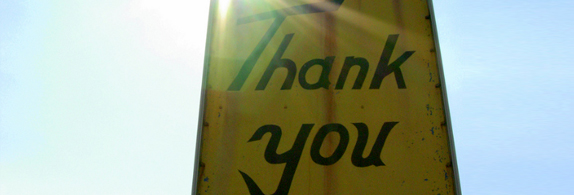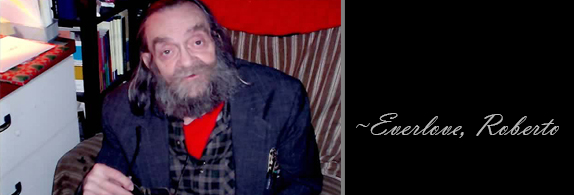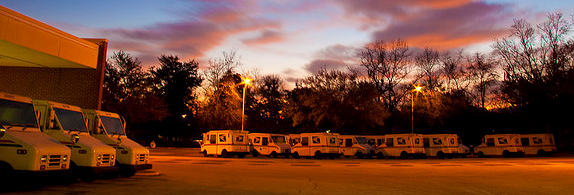Thanksgiving 2013

Thanksgiving is always about counting blessings. And this year the blessings are so bountiful it will take many miles walking on the Duranes Lateral, while the turkey’s cooking to count them all.
For us at the Mercury, we are simply overwhelmed by the inspiring interest, loyalty and curiosity of our beautiful readers, and by the generosity of so many wise and insightful writers and thinkers who’ve appeared in our pages so far. We’ve been up and running for eight months, or some 240 days, each of them filled with new feeds, new headlines, and new pieces by an amazingly prolific community of talent from all across New Mexico. Poets, journalists, essayists, short story writers, photographers, some well known, some down right famous, some just starting out -- out of the goodness of their hearts, and their love of our state and its people, they’ve made it all possible.
And our marvelous readers who’ve purchased memberships in the Mercury and backed us with such kindness, they have given us the margin we’ve needed to keep plugging along at this still financially barebones enterprise. In fact, they’ve supplied ninety percent of our income so far. We cannot thank them enough.
We’ve been truly blessed by our major advertiser, Bookworks on Rio Grande in the North Valley, which consistently has not only the best non-fiction table of any bookstore I know of, but that, in my judgment, competes admirably and wins frequently against Amazon in ordering books and getting them fast. We’re grateful too for our association with Chatter and its audience of gifted and sympathetic music and poetry lovers.
It’s impossible to thank all our editorial contributors here, but I must thank Margaret Randall who has been with us from the beginning. Her genius for appreciation, her lucid prose and her analysis of the contexts of injustice, not to mention her unflagging support and monumental productivity, have anchored our efforts since our first day out. Also with us from the start is our poetry curator Don McIver who knows and loves the world of poetry in New Mexico so deeply. We wanted to make poetry a regular part of our line up and, with his help, we have.
For me personally, I’ll be forever grateful to the Mercury’s co-founder and publisher, Benito Aragon. I cannot think of a better business and creative partner to have in this editorial world of 24/7 all out effort. He is the mastermind that makes all this work. His inventiveness, his taste, his sensibilities and understanding of the world, his scrupulous attention to all our writers, our curated materials, and the overall look of our page, makes the Mercury what it is. He’s given me a new lease on life as an editor and writer, one that I really never thought I’d have again. And if it weren’t for Rini Price, my editor and spouse for 45 years, I would never have had the courage or the energy to keep on plugging.
There’s no way we can say thank you enough to everyone who has helped us so much so far except to keep evolving the Mercury into an ever more sustainable and ever more relevant part of New Mexico’s journalistic and writing culture. Our goal is to better serve New Mexicans every day. It’s a joyous challenge, one filled with admiration, gratitude and, at times, high humor. As we’ve scoured the countryside for capital and sales staff, we’ve encountered some high hopes and some whopping downers, so far down in fact, the only way out is to laugh. But as philosopher George Santayana has said, “Wisdom comes by disillusionment,” as long as it doesn’t last too long.
As we approach Thanksgiving, it’s good to remember that turkeys have always taught me quite a lot about self-disillusionment. Cooking them has been a challenge. They seem so pink and morbid when you peel off their plastic outfits. This year will be my 45th turkey cooking. We’ve kept all the wishbones. Most of them are part of a shrine to our old lopsided stove that gave up the ghost twenty years ago after valiant service, one golden brown, salmonella free turkey after another.
Bright and early Thanksgiving morning I start the day off by thanking the Turkey spirits that I’ve managed to fumble along in my propitiations properly enough that they haven’t made my family and friends sick. The first year, though, some of us were laughing so hard we almost had a religious experience.
We had taken the first bird to an old friend’s adobe house in Corrales. It wasn’t quite snowing. The scent of supper made us all feel cozy and white wine was flowing. I got up from the table to do the honors and sliced into the incredibly beautiful specimen that was so crisp and sumptuous it was getting rave reviews on looks alone. A number of slices in, my carving was brought up short as I stared incredulously into the bird. The written word had appeared, in fine print, under my blade. Thoughts of miraculous happenings crossed my mind for an instant. I announced the appearance to the assembled, and the whole table rushed to get a look. As they gathered there, larger letters appeared. They read, in good old English, not in Aramaic or Linear Minoan B, “REMOVE THIS BAG.” The uproar was deafening. And the episode has been passed down over the years, recounted with relish and all the fixin’s. Humble pie is the proper dish of all turkey cookers. And I welcome a savory slice every year.
Cecil Robert Lloyd – 1928 – 2006

Cecil Robert Lloyd had many names. C. Robert Lloyd, C.R. Lloyd, Bob, Robert, Lloyd, Roberto, Bobby and Wombat. He might have had as many names as he had talents, but I think talent and genius would win out in a count. He died at 78 of a stroke or a heart attack by himself in a little apartment near Winrock in Albuquerque seven years ago.
For decades Robert had lived on the street, and in the living rooms and back bedrooms of friends who put him up. He was a prodigious walker, but his various stints working in restaurant kitchens wrecked his legs from standing long hours chopping food. Somewhere around 2000 he was beaten up on Central near the University by a bunch of thugs who used his cane against him. He almost went blind in one eye. But as luck would have it, a doctor friend of his came upon him in the hospital and spent many months figuring out his social security status. After a long wait he managed to get a government stipend and rent an apartment of his own, a place to lodge himself and to store his papers and his books. It was probably the first place in 45 years that he could call his own.
Robert had a great many papers. Although he lived on the street, he was not a street person, though perhaps those who didn’t know him might have thought so. Robert Lloyd was the personification of the old warning – don’t judge a book by its cover.
In the bio to his beautifully mysterious and idiosyncratic collection of poems, Homage/Image published in l976 by San Marcos Press, I wrote that his life and art were kaleidoscopic. “He’s a shape changer: a jester, scholar, nomad, Wombat, teacher, actor, chef; a gentleman man of letters, polished, polite, old fashioned; a wild and wooly hard-rock stomper; a bearded Whitmanesque character trudging the streets of Albuquerque; a bardic talker, reveler, a serious and melodic man. His brain is like the Library of Congress. His pockets are middens. He never forgets a birthday…. A student of music, anthropology, German literature and language, psychology, art, world history and mythology, a man of vast erudition, Robert has been a bartender, journalist, realtor, researcher, a photo-optical technician at the White Sands Missile Range, a field photographer for the Harvard Peabody Museum National Geographic Society joint archaeology expedition at Hell Gap, Wyoming, and a cultural analyst for the City of Albuquerque’s Model Cities Program.”
But more important, for me, was his presence as the archetype of a poet come to life – a lover of the world and of those who praise it, a tireless promoter of other people’s work, an exuberant man of intricate passions, a mature and diligent craftsman.
In Homage/Image, Robert gave form to a theme recurring throughout his work – that great art is a personal triumph, a tour-de-force in the art of living. Robert’s imagination was both sensual and intellectual. Concepts blend with sensations to create metaphors that sometimes seem like ciphers. They become accessible, however, when the reader ceases to make distinctions between thoughts and feelings, between objects, emotions, and ideas. He perceived and represented reality as a single entity in which everything, including consciousness, is intimately related to everything else. For Robert, words and syntax were not so much vehicles as direct impressions. It’s as if the blank page were a photographic plate, sensitive to his cerebral processes.
Near the end of the Image section of Homage/Image is a poem with a long title. The whole work gets to the core of Robert Lloyd’s honoring of what it means to be alive.
LOOKING AT A PORTRAIT SCULPTURE OF THE INDIAN HOLYMAN, ASANGA (JAPANESE, MUJAKU0), FLOWERED AROUND 350 C.E. – STANDS IN THE KOFUKUJI TREASURE HALL OF NARA, JAPAN.
MUJAKU: Wood, 194 cm. high,
it all shows
now
your head is cracked
your scalp runs dye
or blood or rain
down your face
your flesh
is peeling paint
your face is patched
with flakes
tough
darkness shows
through your lacquered skin
but your
eyes
are saved and haven
someone
taking a good look
at you
centuries back in
India
would have marked
you safe as almonds
expanded
to the tongue
imagined though you are
taking
the good look
have foreseen then you
were like this
alive but
no one saw
your face of time
save you
until this temple carver
stroked your space
beside yourself he
was next only
to have seen you
youth and wise
for him at first you
were fresh and wet
now
in the Treasure Hall
or from the book
lap-heavy
you seem old
at last and dryly
sage and we
taste the bitter nutskin
decay the shell
of sensation
a pucker
only your perceived
with a dream
of goodness over
teach and mountains where
you sat landscapes
behind your face seen
by so many where
now heaven shows
you were cracked in
the head and drank
snows
someone took a good look
it is you
now I had best
watch you
the same as you
my eyes
be spent and refuge
5 IX l969
Albuquerque
Robert Lloyd could be seen trudging up Central Avenue, eyes to the ground looking for change. And he was a keen-eyed scout when it came to finding riches. A roll of bills under a bar booth table, a Cross pen and pencil set, the pen found in one bar, the pencil in another. He collected cat food coupons for his friends who put him up. His wallet was bulging with them. And he gave them out liberally. But most of the coupons had expired.
His mastery of German was such that a classics scholar hired him to translate a l9th century German analysis of classical Greek myths and archaeological findings.
Rilke, Jung, the American Civil War, Eliot, Pound, Auden, and dozens of other poets and scholars, were at his finger tips. He could accurately be called a scavenger in history. Once you had a conversation with Robert and were, perhaps, the benefactor of one of his many and seemingly endless acts of intellectual generosity, you never forgot him.
His correspondence was as copious as any aided by email writing machines. Yet he never used a computer. He wrote beautiful, long, intelligent letters to probably hundreds of people over a year, all in his elegant cursive, and made handwritten copies, which he often misplaced. All his letters to close friends were signed “Everlove, Roberto”
And that was his essence. He looked more and more elfin and destitute the older he became, but his heart grew and grew, filled with everlove for the world and for most anyone he met. This year will be the seventh Christmas Eve he hasn’t spent in my big chair in my office eating cookies, drinking wine and holding court almost without making a sound, haloed by a smile that became an aura drawing children, cats, and wise people into its warmth.
Democratizing Forces At Work

In this land of rugged individualism and the profit motive, democratizing influences are hard to find and precious when you do. It used to be we were brought together by the draft, or the threat of it. Numerous futile attempts have been made over the years to create a compulsory period of national service for everyone. It’s never been an appealing thought. The only obvious mandatory public service any us must perform is jury duty. And it can level the playing field fast.
There are other less obvious social forces that hold us together as a nation.
Public schools are the most prominent, or they used to be. Almost all of us, except for the very wealthy, shared a twelve year experience of public education, for better or worse, local differences not withstanding. In public schools, it was said, one learned the social skills to survive in a pluralistic society. And I can’t argue with that.
The democratizers I admire most, next to teachers, are the folks who staff our post offices. New Mexico two years ago had just under 3,000 postal service employees who process and deliver some 200 billion pieces of mail a year. And though the numbers are declining, and the postal service is under fire from conservatives in Congress, and under competitive pressure from corporate delivery companies, the U.S. Mail still provides, day in and day out, an extraordinary service, and one that gets to virtually every person in the state and nation.
The U.S. Mail holds us together. It’s a common experience. When we left boxes of canned goods for the postal service Thanksgiving food drive by our mail box last Saturday, we were reminded of what those 3000 or so neighbors of ours mean to us. We trust them to deliver, sometimes, our livelihood to our door. We trust them sometimes with the most personal of messages. We trust them to make it through the sleet and storm and bring us what we’re waiting for. We trust them to protect our P.O. Boxes and file the billions of pieces of mail in the right slots.
And most of them do their work with the patience of Job. My post office often has one person behind the counter these days, and a line of generally civil people who are all impatient, though well mannered. But then there’s always the person drumming his fingers loudly, or the lady in line who complains just loud enough to the person next to her so all can hear as they watch and scowl at the soul struggling the keep the line moving, operate the machines, and do all the procedures properly. I can’t remember when I’ve seen a postal person behind the counter actually lose it. And there’s a man at the substation on Veranda in the North Valley who I think is the most patient and efficient person I’ve ever encountered.
Right along with postal workers, in my admiration, are the guys who pick up the city’s garbage every day. Where would we be without them? They are democratizers, too, and level the playing field in one of the most important of ways. In a throwaway society like ours, they pick up after us. And if they didn’t? We’ve seen photographs of cities where sanitation workers have gone on strike, mountains and valleys of rubbish clogging every street to the point of avalanche. In an important way, because we all need them, they hold us together as well. They are public workers. They work for us. We pay them. They keep our communities going. And they give us, much of the time, better service than we’d get from big companies with call centers five thousand miles away. Of course, private companies have fine workers too. I think of our plumber, TLC, who hires the nicest folks around. We trust them too. And the people who work hard jobs laying pavement or asphalt on our streets and highways also deserve our acknowledgement.
But public employees are our employees. They work for us. And when we’re rude to them, when we don’t respect their efforts and when we undercut the institutions they sustain we’re really no better than the owners of sweatshops. Not only are we dissing them, we’re disrespecting the common culture they help to create, the world we all in habit, the public world which none of us can do without.
(Photos: Thank you sign by Todd Hryck, Post Office sunset by Rob Bixby.)




Responses to “Provincial Matters, 11-25-2013”